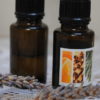Lately, with all the talk about Vitamin D, it’s easy to assume that it’s just hype, but continuing research reveals Vitamin D’s multifaceted role in your life! Just scan these headlines from news and research source Science Daily to see the big picture. (You can even click the links to learn more.)
Higher levels of vitamin D correspond to lower cancer risk
Vitamin D improves heart function, study finds
Higher risk of leukemia linked to low sunlight, vitamin D
Taking Vitamin D May Benefit People With Multiple Sclerosis
Large proportion of IBS sufferers are vitamin D deficient
Low Levels of Vitamin D May Increase Risk of Stress Fractures in Active Individuals
Low vitamin D predicts aggressive prostate cancer
Vitamin D may play key role in preventing macular degeneration
Just from the above headlines, it’s clear that researchers are continuing to find numerous benefits from having the right Vitamin D levels. This amazing compound plays a key role in the synergistic interactions of vitamins, phytochemicals, hormones, minerals, etc. in your body.
Consider your Vitamin D levels—all year round!
Eating a whole-food-based diet, being active, and maintaining the right Vitamin D levels … especially if you live the Northwest or other limited-sunlight states … can help keep you healthy.
If you’re in the Northwest, the region’s latitude makes for nine months of low sunlight. There’s only three months of potential direct sun exposure to help produce needed Vitamin D here in the Pacific NW. So if you live here in the NW, taking a supplement is recommended as you can’t get enough vitamin D from food.
The amount of vitamin D you make varies:
- The time of day – your skin produces the most vitamin D between 10-2.
- Where you live – the closer you live to the equator, the easier it is for you to produce vitamin D from sunlight all year round. The farther away, the less you make.
- Your skin color – fair skin makes more vitamin D than darker skins in shorter amount of times.
- How much skin is exposed to the sun – the more skin you expose, the more vitamin D your body will produce.
You can work with your medical and/or naturopathic doctors to do the blood work for testing your specific vitamin level. (I can recommend practitioners for those who live in the Portland Metro Area.) More and more medical practitioners are testing for vitamin D levels in routine lab testing. If yours is not, be sure to request it.
And, if/when selecting a supplement …
- Look for D3 (ideally with K2, which helps your body maximize the Vitamin D); and
- Aim for about 2,000 IU (International Unit), however, your ideal range can be determined by your physician.

So, get outside and enjoy the sunlight. It only takes 10 – 20 minutes of exposing your skin to the sun’s rays to produce that incredible vitamin D. Your goal is not to burn, but to activate your body’s system to produce this healthy component we need in our lives.
Have more questions about Vitamin D or achieving a healthy lifestyle? Contact me at devi@simplywholebydevi.com.



![z31[1]](https://simplywholebydevi.com/wp-content/uploads/2018/06/z311-100x100.jpg)












